Lawyer in the USA with or without a license: tips for Ukrainian lawyers
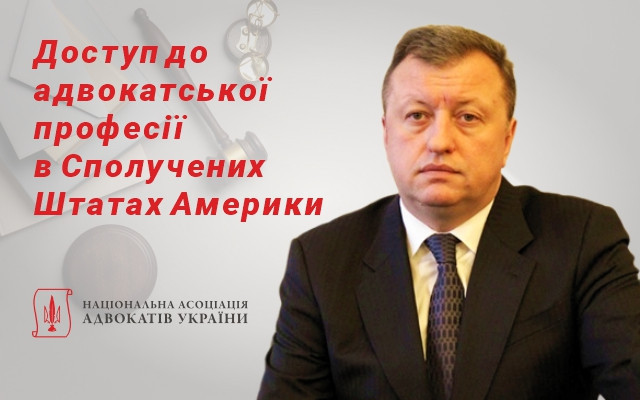
Becoming a lawyer (or an attorney, which is synonymous in the United States) is a task of extreme difficulty. No exceptions are made for anyone. Even for Ukrainians who have been in the United States since February 24, 2022.
During the webinar «Access to the Legal Profession Abroad», which took place today, December 4, UNBA representative in the United States Viktor Shemchuk revealed the specifics of the work of a lawyer in this country.
He noted that a key feature of legal practice in the United States is that legal services can only be provided by an attorney licensed by the state Supreme Court. Each state and territory of the United States has its own legal regulation of the provision of legal services, which is usually carried out by state supreme courts. Most often, states adopt their own rules based on model regulations developed by the American Bar Association (ABA). At the same time, a license grants the right to practice in only one state. For another state, you need to take a new exam and go through everything from the beginning (unless the states recognize each other's licenses on a reciprocal basis).
Seven steps to a license
Obtaining a license to practice law in the United States involves the following steps:
1. Choosing a law school that offers the J.D. program.
This stage is a rather complicated and responsible process. First of all, you should study the materials, programs and ratings of the main law schools in the state, find what you like and what will bring you recognition and prosperity. Once you are admitted to law school, you will study for three years and earn a Juris Doctor (JD) degree upon graduation.
After 1.5 years of study (which is half the time to complete the degree), you will have the opportunity to enroll in specialized courses and apply for graduate courses that give you the opportunity to observe and participate in daily legal procedures. The school's specialized courses cover the areas of banking, commercial, construction, labor law, property law, financial and commercial law, family law, human rights, intellectual property, international law and shipping law, or sports and tax law. If you are interested in a specific area of law, such as environmental law, you may need to take an accounting course or delve into environmental science to gain a broader knowledge of the field. Candidates for admission to the exam must have successfully completed a full course in a legal specialty and earned a J.D. degree. Each state has its own nuances.
2. Conducting an official evaluation of your foreign education.
Detailed information on the collection of documents and other requirements for candidates at this stage can be found on the website of the New York State Board of Law Examiners (BOLE) in the Foreign Legal Education section. There are similar organizations in all states.
3. Submission of the Bar Exam Application.
This should not be difficult for a lawyer. The form is on the website.
4. Preparation and passing the main exam (Uniform Bar Exam, UBE).
A detailed description of the exam and the testing process is available on the BOLE website. Since July 2016, the State of New York has joined the jurisdictions that use the Uniform Bar Exam (UBE) model for the bar exam, unlike some other states that prefer to conduct a specific, non-unified exam.
5. Fulfillment of additional qualification requirements for admission to the bar (NYLC, NYLE, MRPE, Pro Bono, Skills).
These requirements include:
- completion of the online New York Law Course (NYLC). The course is available to all candidates who have registered on the BOLE website;
- passing the New York Law Exam (NYLE). Additional information is available on the BOLE website;
- passing the Multi-State Professional Responsibility Exam (MPRE). Information about this exam and registration deadlines is available on the website of the National Conference of Bar Examiners;
- fulfillment of the New York State Bar Pro Bono requirement (equivalent to our 50 hours of free practice). The procedure is available here and here;
- passing the skills competency requirement test. The BOLE website provides answers to questions and recommendations on how to pass the test.
6. Submitting an application for admission to the Bar and passing a character and fitness investigation (Character and Fitness Investigation).
It is a complicated process, but if you have already reached this step, there is no turning back. All application forms can be found on the BOLE website.
7. Swearing in ceremony (Swearing In Ceremony).
The ceremony looks solemn and official. It usually takes place in the state Supreme Court. Upon completion of the ceremony, the new lawyer receives a certificate of admission to the New York State Bar and may begin practicing law in this jurisdiction.
4 types of legal activities without a license
Lawyers who are concerned about the complexity, financial costs, and duration of the process of obtaining a law license in the United States (practice law) will be interested to know that a lawyer with a Ukrainian law degree has at least four ways to apply their degree in the United States.
Method 1. Permanent limited practice as a foreign legal consultant (FLC)
This method provides that a foreign lawyer, specially registered with the state bar, may give limited legal advice on the content of the law of the foreign country in which he or she was licensed. At least 33 jurisdictions in the United States have already enacted legal regulation on this issue. At the same time, 10 of them also allow a registered foreign lawyer to provide legal advice on the law of third countries and international law.
Method 2. Temporary practice of law to support transactions in the U.S. jurisdiction
This option, often referred to as fly-in-fly-out (FIFO), may be in demand when a foreign lawyer enters the jurisdiction of a particular state to participate in negotiations on transactions (sale and purchase of goods, sale of services, investment project, etc.) However, such temporary and limited legal activities do not give grounds to recognize that a foreign lawyer has opened a law office or is engaged in systematic or permanent legal activities in that jurisdiction.
Method 3. Temporary (one-time) representation of the client's interests in court with the permission of the court in a particular case (on the basis of «pro hac vice»)
In the US legal practice, the expression «pro hac vice» is used when a court authorizes a lawyer to represent a client in court or provide advice in a case on a one-time basis if the lawyer does not have a general license in such cases.
As follows from the translation of this Latin expression («for this case»), this form of temporary admission of a foreign lawyer is possible in circumstances where the client expresses a desire that his lawyer practicing in a foreign jurisdiction be authorized to appear in a U.S. court to represent his interests through a special admission procedure in a particular case (for example, in the case of consideration of enforcement of a foreign court judgment or arbitration award, or if the law of a foreign country has been chosen as applicable in a case). However, even in cases of such limited admission to defend the client's interests in court, a foreign lawyer may work under the condition of mandatory cooperation with a U.S. lawyer admitted to the local bar of the state, as well as be tested for compliance with all the requirements for a "pro hac vice" lawyer that are imposed on a "full" lawyer in a particular state.
Method 4. Limited practice as an in-house counsel of a U.S. company or organization (In-house Counsel)
Since 2002, when the American Bar Association amended the Model Rules of Professional Conduct (Rule 5.5(d)), many states have liberalized their rules of legal practice in order to allow, subject to a number of mandatory criteria, the practice of law in multiple jurisdictions for attorneys who have already obtained a law license in one of the US states.
Thus, attorneys who do not have a separate license to practice law in a particular state now have the opportunity to provide legal services in that state to their corporate employer and organizationally related affiliates as legal counsel to their employer (and, in fact, the only client). The practice of such a lawyer is usually limited to matters not related to representing the client in court (which may require additional pro hac vice proceedings). However, there are exceptions that entitle such a lawyer to appear in court to defend the interests of a corporate client.
It is important to understand that the US legislation on the regulation of the practice of law is constantly undergoing significant reform. Each state has its own rules, is not unified and requires close attention. Therefore, you should check the relevance of the information directly on the websites of the Supreme Courts of each state of the United States.
Codes of professional ethics for lawyers in the United States
Codes of professional ethics for judges, attorneys and prosecutors are usually unified, like the Codes of Professional Legal Ethics. Today, the main act on professional legal ethics in the United States is the Model Rules of Professional Conduct adopted by the ABA Congress on August 2, 1983, as amended.
From the name «model» it is clear that all states have their own rules of legal/attorney ethics, developed on the basis of these model rules, and they may be provided in different ways. In addition, and sometimes instead of this rule, in some states, ethical standards of professional activity of lawyers are contained in various documents and rules of the state Supreme Court.
These documents are also called differently: Codes of Ethics, Codes of Professional Responsibility, Codes of Professional Conduct, etc.
Usually, the codes are structured in the same way and regulate the relationship between the advocate and the client and society, and set restrictions on integrity and conflict of interest.
The structure of the codes consists of the following sections:
1. Powers.
2. Scope of services. This section requires mandatory compliance with the requirements and interests of the client, and also indicates situations that require exclusion from the scope of services.
3. Diligence. Suggests that the advocate exercise reasonable diligence and efficiency in representing the client's interests.
4. Submission of information on the case. This rule requires the advocate to inform the client within reasonable limits about the state of the case, including all possibilities of settlement of a civil dispute or conclusion of an agreement in a criminal case.
5. Fees. This rule requires the advocate to set a "reasonable" fee and defines the factors to be taken into account when setting a «reasonable» fee.
6. Confidentiality of information. This rule clearly states that the advocate shall not disclose information that is before the client's submission unless the client agrees to it or if this information will cause harm to the client.
7. Conflict of interest. This rule describes situations that have a potential conflict of interest if the lawyer agrees to handle the case.
8. The relationship between the public and private spheres. The Rule prohibits certain actions of the advocate in relation to an official, if there is an obvious benefit to his or her current or former client.
9. Former judge or arbitrator. The Rule prohibits an advocate from filing or representing interests in a case if he or she was involved in it as a judge, prosecutor, detective, etc.
These rules also establish the provisions of the ethical standards of lawyers in relation to: legal advisers and interested parties; rules of communication with persons who are not clients of the lawyer; regulate the activities of law firms and the rules of membership in bar associations; oblige the lawyer to act for the benefit of society.
Taxes
Whatever your status in the United States, if you have a Social Security number (SSN), the government expects you to pay taxes. US residents are required to pay taxes on all income in all jurisdictions.
More than 40 states also require you to pay state income taxes (annually) in addition to federal taxes. In these states, individuals who have received income in the form of wages, dividends, etc. must also file state income tax returns by April 18.
Each state has its own taxation procedures, so it is best to seek clarification and assistance from professionals in this area - CPAs (Certified Public Accountants) in the state where you live and work.
Tax evasion is subject to fines and penalties. In certain cases of tax evasion, criminal proceedings are initiated. For late payment or submission of inaccurate information, the IRS can freeze bank accounts or withdraw money from wages.
Most American citizens have until April 18 to file their tax returns and pay their taxes.
Ukrainians who came to the US in 2022-2023 or earlier should file income tax returns, even if they were below the minimum tax level.
All U.S. residents (with the exception of certain foreign diplomats) must pay taxes for 2022 if their income exceeds $12,950 to $28,700, depending on age and marital status. People who are self-employed are required to report their income and file taxes if they earned at least $400 in a year.
When filing a tax return from January to mid-April of the following year, the taxes paid are calculated. After that, the taxpayer either has to pay the government the amount of underpaid taxes or can get a refund if it turns out that he or she paid more than necessary during the year.
The NYT cites a study by Syracuse University, according to which the chances of being audited are only about 0.38%. According to the study, in the fiscal year 2022, the probability that an IRS agent would audit a millionaire was only 1.1%. As a result, slightly more than one out of every 100 millionaires was audited (in total, more than 165 million tax returns were filed in the United States last year).
Taxes in Ukraine from refugees in the United States
Ukrainians who fled the war and stayed in a foreign country, earned money and/or received financial assistance there, should keep in mind the provisions of the Tax Code of Ukraine on foreign income - such funds are subject to declaration and taxation. At the same time, assistance received from foreign states and companies should be reported as foreign income, but income tax and military duty are not payable on such amounts. Instead, other income, other than aid, received abroad will be taxed in Ukraine at a rate of 18% and subject to a 1.5% military duty.
Popular news
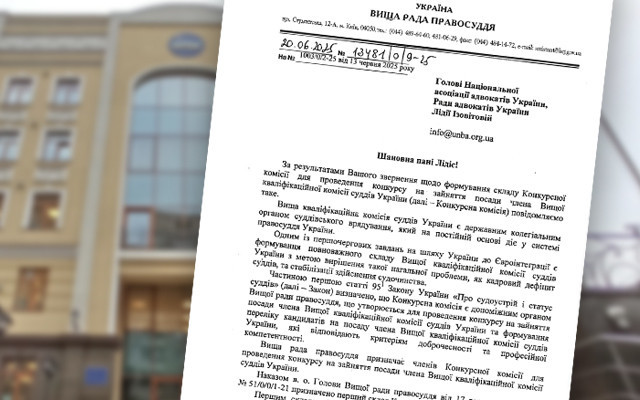
Self-government
The HCJ continues to ignore the legal deadlines for forming the Competition Commission of the HQCJ
The High Council of Justice continues to violate the statutory deadlines for forming a new competition commission to select members of the Competition Commission of the High Qualification Commission of Judges of Ukraine.
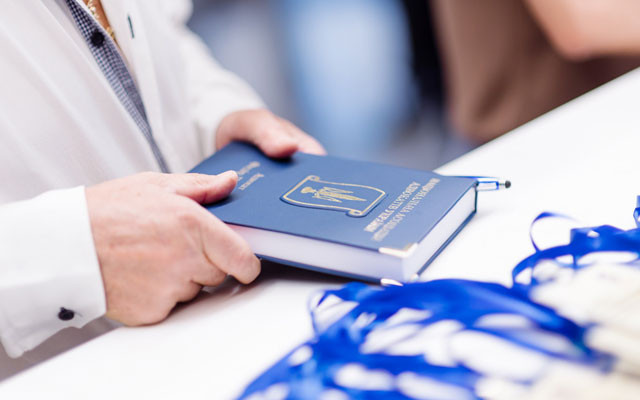
Advocacy
UNBA asked the UBA about the facts of the alleged violations of lawyers' rights
The National Bar Association of Ukraine is concerned about information regarding violations of the professional rights of advocates and guarantees of advocacy, which was disseminated on June 16 by the UPO «Ukrainian Bar Association». This issue will be discussed at a meeting of the Bar Council of Ukraine.

Advocacy
Another conflict with the TCC: an advocate's leg was broken and his client jumped out of a window
On June 19, at the premises of the military medical commission, where a bus from the Krasnograd Territorial Center for Recruitment and Social Support delivered several people, an incident occurred involving the use of physical force against an advocate.
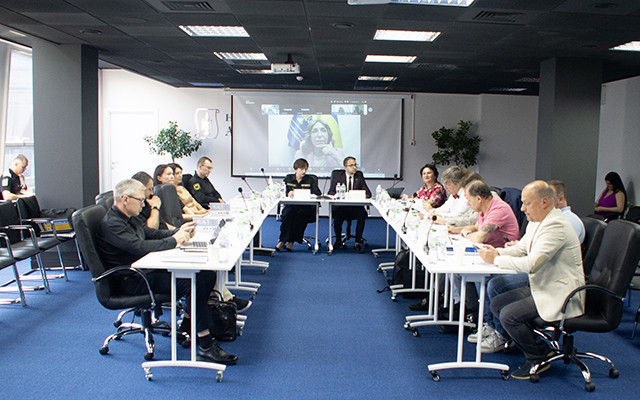
Advocacy
Independence of advocacy and accountability of expertise: different models, shared responsibility
Two different models of professional organization coexist in Ukraine: advocacy with established self-government and judicial and expert activities that remain under state control. How can approaches be balanced, the openness of expert opinions ensured, and effective interaction between specialists established?
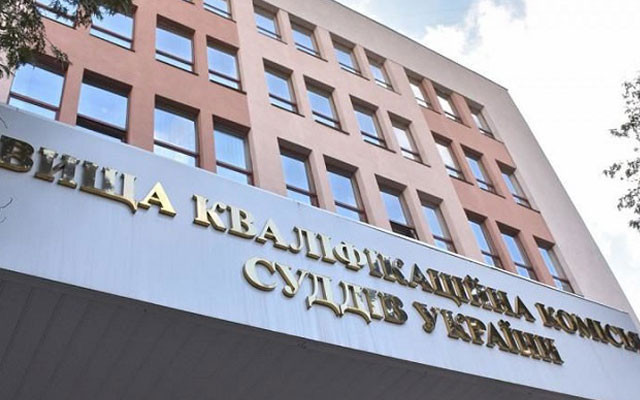
Advocacy
The Bar Council of Ukraine appealed to the High Council of Justice due to delays in forming the Competition Commission of t…
On June 13, 2025, Lidiya Izovitova, President of the Bar Council of Ukraine, addressed Grigory Usik, Head of the High Council of Justice, regarding the violation of the deadlines for forming a new composition of the Competition Commission for the selection of members of the High Qualification Commission of Judges of Ukraine.
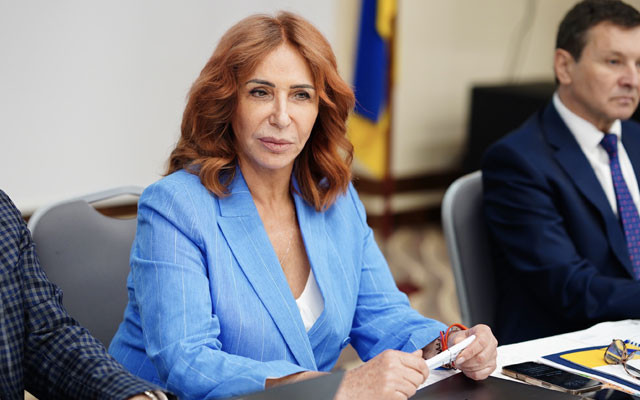
Advocacy
UNBA calls for compliance with Council of Europe standards for the legal profession
The recently approved roadmap for EU accession in terms of bar reform refers to non-existent European standards and was adopted in violation of international principles. Therefore, before talking about changes, it is necessary to compare the current model of the bar with the Council of Europe standards embodied in the Convention on the Protection of the Profession of Lawyer.
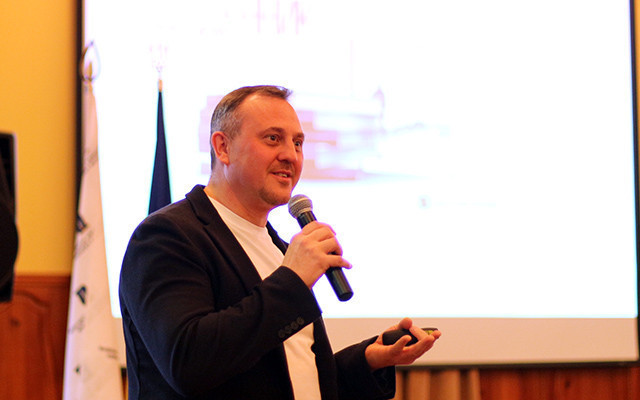
Advocacy
Andriy Osipov appointed head of the Ukrainian State Film Agency
The Cabinet of Ministers of Ukraine has appointed Andriy Osipov as head of the Ukrainian State Film Agency.
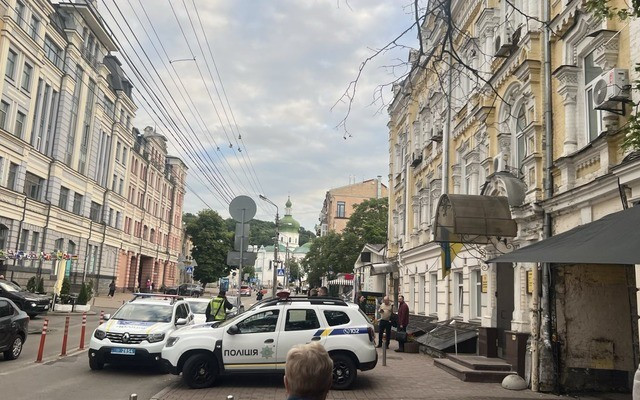
Advocacy
Mobilization of advocates in court: UNBA records another case of pressure
The Ukrainian advocacy has once again faced extrajudicial influence on advocates with the aim of obstructing the exercise of their legitimate powers related to the provision of professional legal assistance to clients.
Publications

Ihor Kolesnykov A BRIEF SUMMARY REGARDING THE APPLICATION OF THE ORDER ON EXTENDED CONFISCATION IN LATVIA REGARDING FINANCIAL ASSETS OF…

Valentyn Gvozdiy WORKING IN A WAR ZONE

Lydia Izovitova Formula of perfection

Sergiy Vylkov Our judicial system is so built that courts do not trust advocates

Iryna Vasylyk Advocacy in the proclamation of Independence of Ukraine

Oleksandr DULSKY When we cross the border of the Supreme Anti-Corruption Court, we get into another department of the National Anti-Corruption…

Vadym Krasnyk The UNBA will work, and all obstacles and restrictions are only temporary inconveniences

Lydia Izovitova Interview with Lydia Izovitova on the occasion of the 8th anniversary of the founding of UNBA: We are the voice of t…
